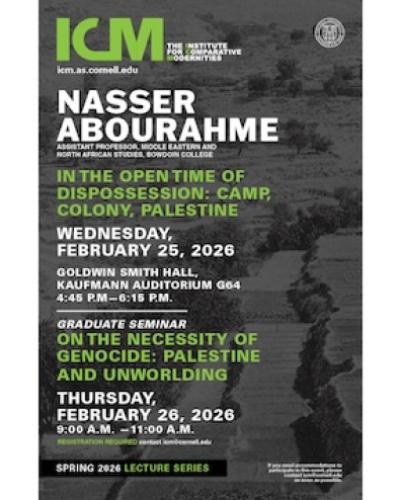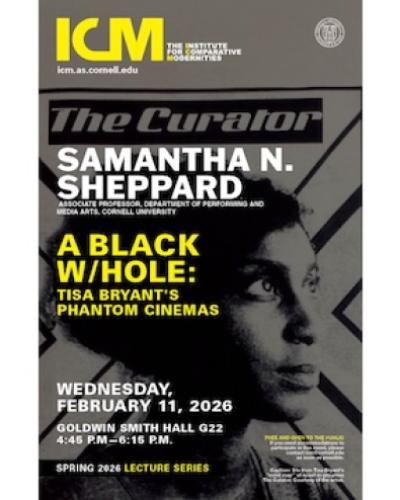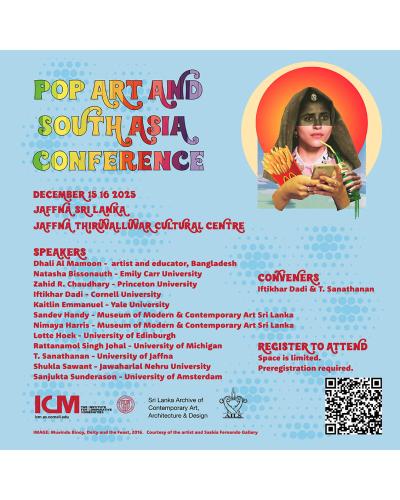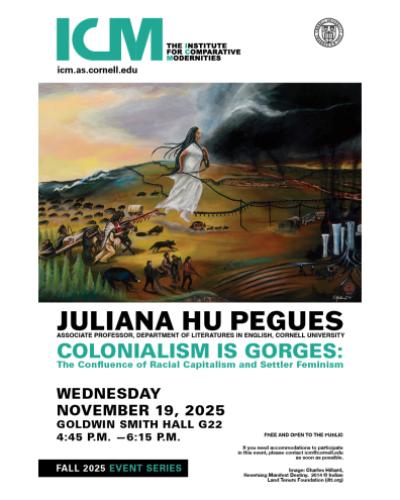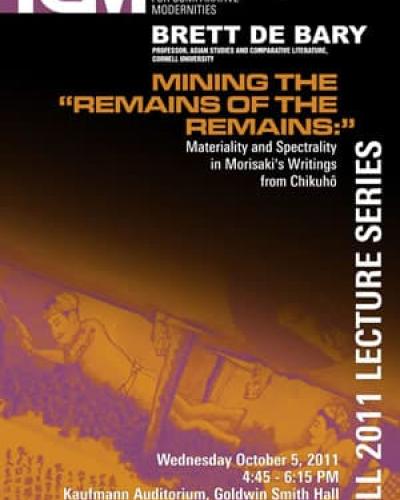Kaufmann Auditorium, Goldwin Smith Hall
BRETT DE BARY (Professor, Asian Studies and Comparative Literature, Cornell University)
The paper considers selected essays from Morisaki Kazue’sPrinciples of Otherness (異族の原基, Yamato Shobô 1971) in relation to studies of comparative modernity, translation theory, and gender and spatial practice. Morisaki’s writing from the Circle Village collective, located at the site of the protracted Chikuhô coal-mining strikes of the 1960s, has been seen as a forerunner to the emergence of second-wave feminism in Japan, and, because of her status as daughter of Japanese colonizers returned from Korea, as a contribution to post-colonial criticism. The paper argues that, indeed, Morisaki’s work participates in the critique of U.S.-derived modernization theory characteristic of much Japanese intellectual and avant-garde art practice of the early 1960s. Moreover, consonant with Circle Village’s distinctive emphasis on contesting the urban telos of both modernization theory and orthodox Marxist historiography, Morisaki chose to voice this critique from the marginal site of rural Kyushu. Her works from Chikuhô might therefore be seen as attempting to trace the outlines of what Spivak has described as “epistemes or mindsets foreclosed by capitalist/socialist teleology, defective for capitalism” that “survive in more or less habitable ruins…as more or less recognizable remains.” De Bary explores the figuration of the Chikuhô mines as “more or less recognizable remains” in Morisaki’s writings, suggesting that her representation of this underground space and its floating specters can be seen as resonating with the “planetarity” Spivak finds in Marti’s depictions of the rural Cuban “earth” and the “uncanny” caves of Mahasweta Devi’s Pirtha. Rather than insisting that one or another representational practice finally resolves the aporias faced by writers seeking to pluralize modernity and its impacts, however, de Bary argues that it is this very effort that constitutes the stuff, texture, and even “materiality” of the writing practice of authors like Morisaki at Chikuhô.
Brett de Bary is Professor of Asian Studies and Comparative Literature at Cornell University, and Senior Editor of Traces: A Multilingual Series of Cultural Theory and Translation. She has served as Director of Cornell’s Society for the Humanities and of its Visual Studies Program, and as Associate Director of the East Asia Program. She is a member of the international research collaboration “Gender and Migration,” funded by the Japanese Ministry of Education at Osaka University. She is a Fellow at Harvard University’s Reischauer Institute for Japanese Studies, a member of the Humanities Initiative Steering Committee for the Canadian Institute for Advanced Research, and served for 8 years on the Japan Foundation’s American Advisory Committee. Her research interests include modern Japanese fiction and film, the Japanese post-modern, comparative literary theory, translation theory, and the comparison of 20th century cultural criticism by women, especially Simone Weil, Morisaki Kazue, and Hannah Arendt. She is currently writing a book on Morisaki Kazue, who was a member of the artist/activist collective “Circle Village” (サアクル村) established during the political and cultural upheavals over the 1960 renewal of the U.S.-Japan Security Treaty, and around the historic strike at the Mitsui Miike Coal Mine. Recent publications include “Practicing and Theorizing Translation: Implications for the Humanities” (MLA, Professions, 2010); her edited volume, Universities in Translation: The Mental Labor of Globalization (Hong Kong University Press, 2010); “Deixis, Dislocation, and Suspense in Translation: Tawada Yôko’s ‘Bath’” inTranslation and the Sense(s) of the World (Tamkang Studies of Foreign Languages and Literature, 2007) and Deconstructing Nationality, co-edited with Iyotani Toshio and Naoki Sakai (Cornell East Asia Series, 2005).

